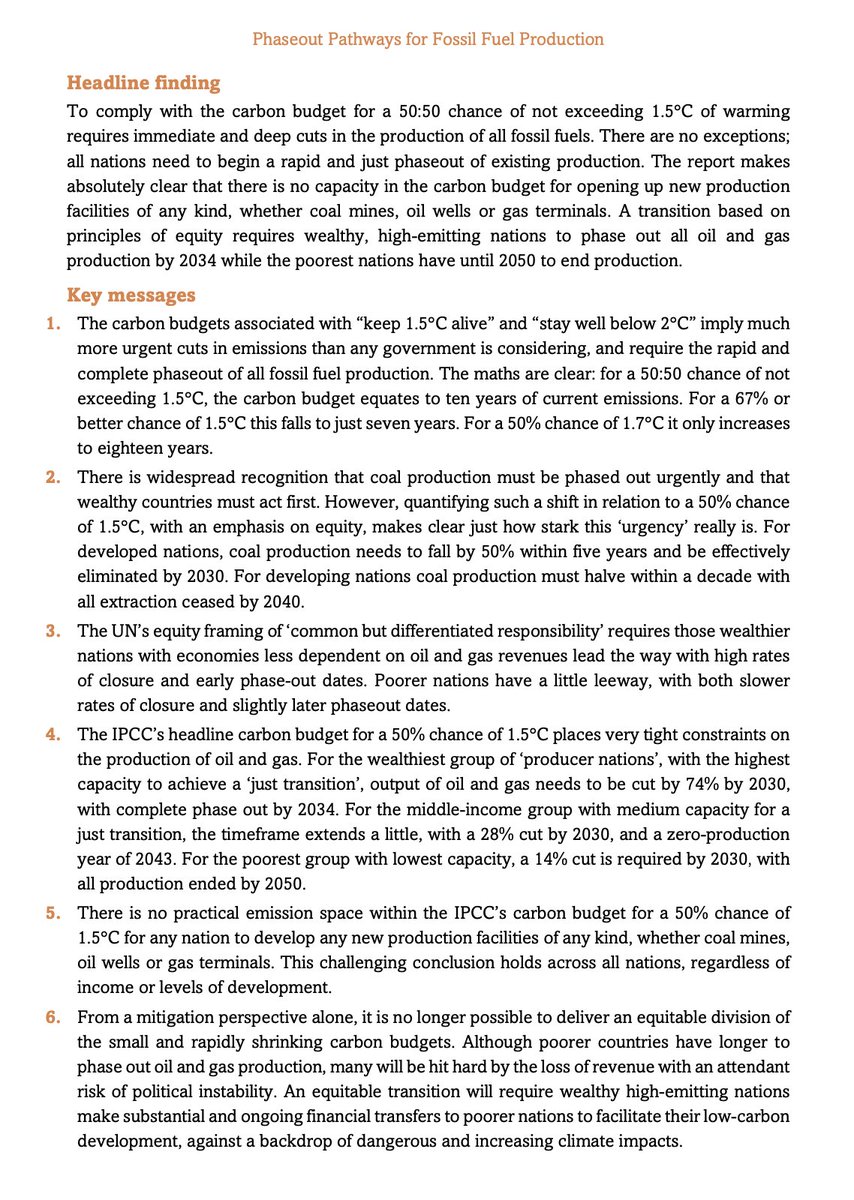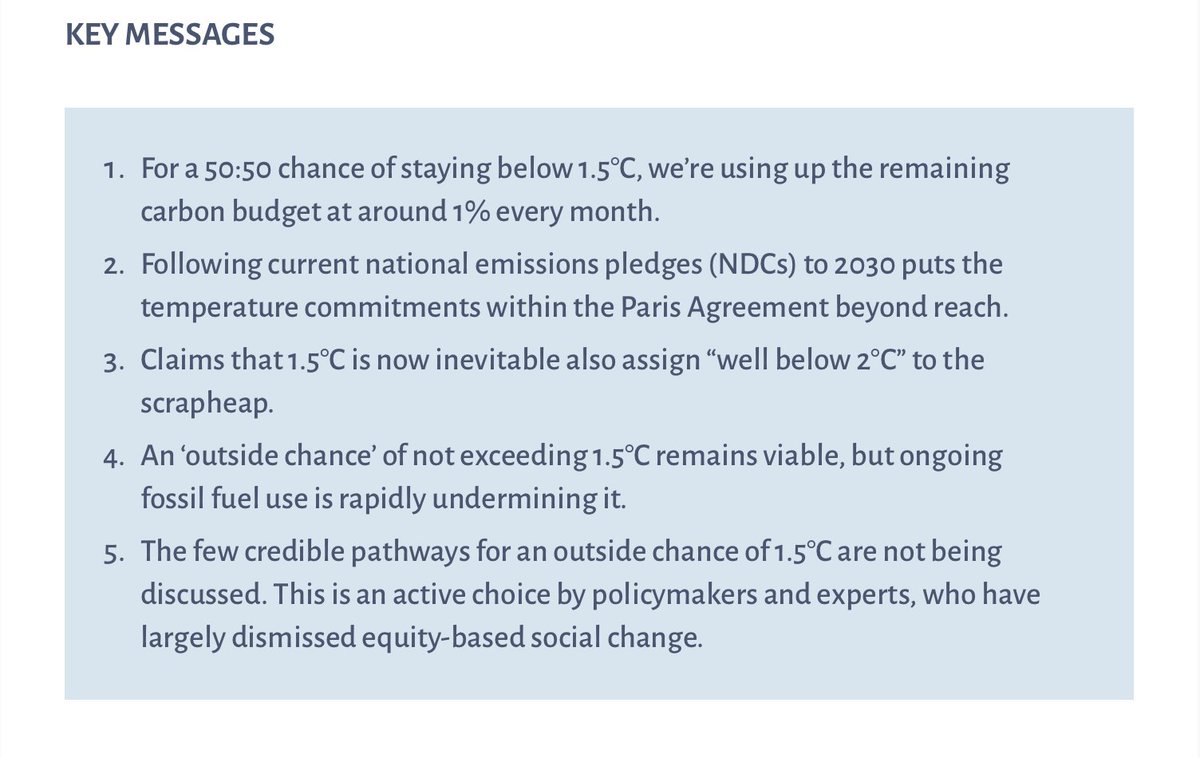
Prof. of energy & climate change - translating climate science into carbon budgets, policy commitments & mitigation options. @kevinclimate.bsky.social
How to get URL link on X (Twitter) App



 Delegates consider rising climate impacts on different sectors. I suspect many of us who work on climate change struggle to imagine futures chaotically disrupted by rapidly rising temperatures. Are we intellectually locked into incremental shifts to today’s norms? @TyndallCentre
Delegates consider rising climate impacts on different sectors. I suspect many of us who work on climate change struggle to imagine futures chaotically disrupted by rapidly rising temperatures. Are we intellectually locked into incremental shifts to today’s norms? @TyndallCentre

 @CarbonBrief @rtmcswee @AyeshaTandon @JimSkeaIPCC @SISeneviratne @FrediOtto @valmasdel @JoeriRogelj @schipper_lisa @CelineGuivarch @_chandnisingh 2of4: By the "end of 2028" & assuming global CO2 still at ~40GtCO2, then, for a good (83%) chance of ≤2°C, global CO2 emissions (basically fossil fuel use) would need to reduce, globally, at 7.5% year-on-year (based on AR6 carbon budget); this rises to 10% with Lamboll's budget.
@CarbonBrief @rtmcswee @AyeshaTandon @JimSkeaIPCC @SISeneviratne @FrediOtto @valmasdel @JoeriRogelj @schipper_lisa @CelineGuivarch @_chandnisingh 2of4: By the "end of 2028" & assuming global CO2 still at ~40GtCO2, then, for a good (83%) chance of ≤2°C, global CO2 emissions (basically fossil fuel use) would need to reduce, globally, at 7.5% year-on-year (based on AR6 carbon budget); this rises to 10% with Lamboll's budget.

 2of4 @bbcnickrobinson @amolrajan To understand the remaining carbon budgets & associated rates of global mitigation, this post provides a transparent & straightforward update of the IPCC's 2020 values to Jan 2023. climateuncensored.com/how-alive-is-1…
2of4 @bbcnickrobinson @amolrajan To understand the remaining carbon budgets & associated rates of global mitigation, this post provides a transparent & straightforward update of the IPCC's 2020 values to Jan 2023. climateuncensored.com/how-alive-is-1… 

